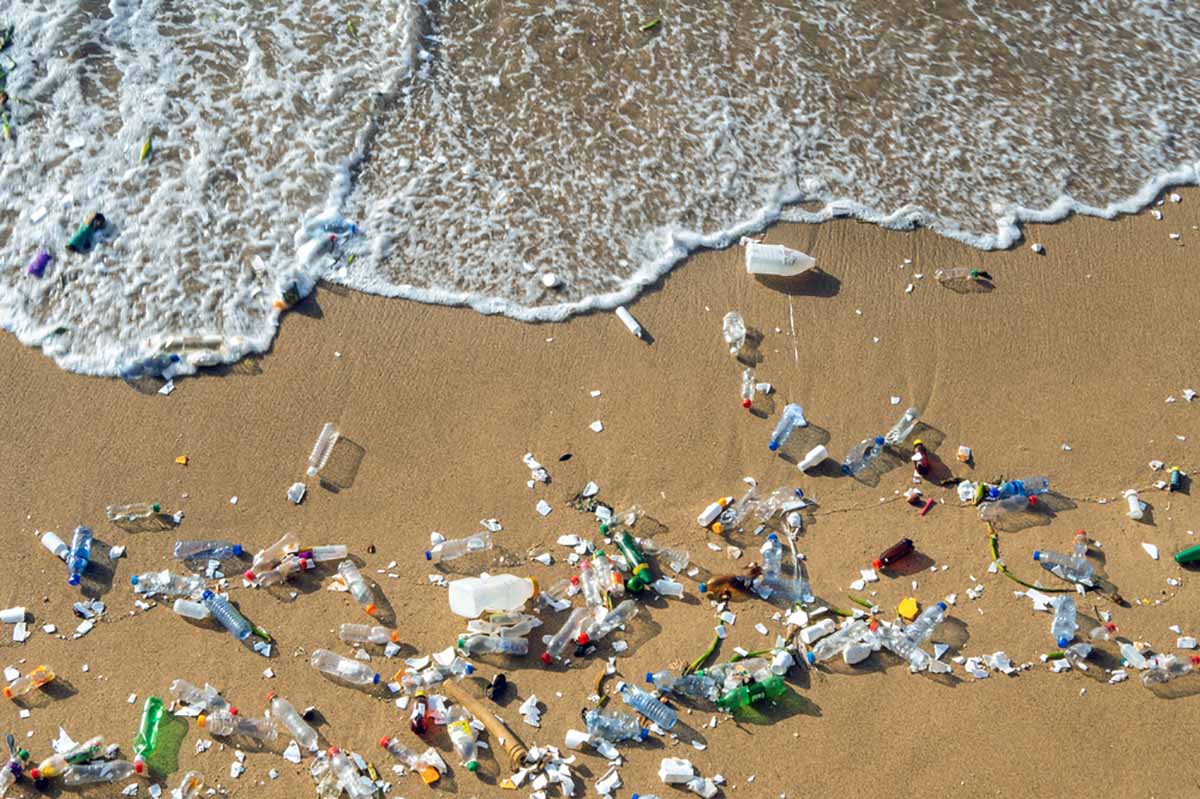
Marine pollution was a focus of a number of industry and environmental groups offering thoughts on the U.S. EPA’s plastics strategy. | Mario De Moya F/Shutterstock
Ahead of a July 31 deadline, the EPA has received nearly 100 comments on its draft National Strategy to Prevent Plastic Pollution, many of them calling for federal-level programs.
Stakeholder comments urged the agency to pay more attention to marine pollution, enact federal extender producer responsibility (EPR) and deposit return systems, and enforce plastic reduction targets.
Strategy with multiple goals
The overarching objectives of the EPA strategy are to reduce pollution during plastic production, improve post-use materials management, remove escaped materials from the environment, and prevent micro- and nano-plastics from entering waterways.
In its comment, environmental group Beyond Plastics called plastic recycling “an abysmal failure” and said the “single most important priority of a federal policy on plastics must be to promote policies and practices that reduce the generation of plastics.”
Beyond Plastics also recommended creating standardized legal definitions, regulating reduction targets for packaging producers with clear timelines, removing toxic chemicals from packaging and instituting national enforcement and compliance initiatives to “prohibit false solutions, particularly ‘chemical recycling’.”
The Green Restaurant Association suggested requiring a high post-consumer material minimum for all disposable products, a national deposit return system and a national disposables fee charged for each disposable product used, with the funds given to restaurants using 100% reusables for in-house and a reusable take-out service.
The United States Department of the Interior suggested expanding the scope of the strategy to include sea-based sources of marine plastic pollution, such as fishing and shipping vessels, “given the substantial contribution of sea-based sources and the significant and increasing contributions of the United States to marine plastic pollution globally.”
Restrictions or bans of non-essential items, more reusables and encouragement of sustainable job growth were the recommendations from the Oregon Department of Environmental Quality, while the Product Stewardship Institute also called for federal EPR for packaging and other products.
“EPR for packaging addresses most of the concerns and questions in the Draft National Strategy to Prevent Plastic Pollution, yet it is only referenced as a solution once,” PSI’s comment noted.
Kerrin O’Brien, executive director of the Michigan Recycling Coalition, also emphasized the lack of attention paid to EPR. “Products produced in one community but consumed in many will require coordinated effort at a higher level,” she said.
“It would be great to see EPA prioritize exploring options with producers regarding the impacts of their plastic products and packaging because if it happens like it happened in recycling, it will cost producers much, much more to cover the disparate system of EPR developing now,” O’Brien said. “There is an enormity of issues, options and opportunities that can and will be undertaken to address these issues,” she continued. “A draft strategy that goes beyond voluntary efforts that can be undertaken in the U.S. and brings some focus to what EPA’s role and goals are in this realm would provide needed leadership, but [these] are missing from this strategy.”
Comments are open through Monday, July 31.